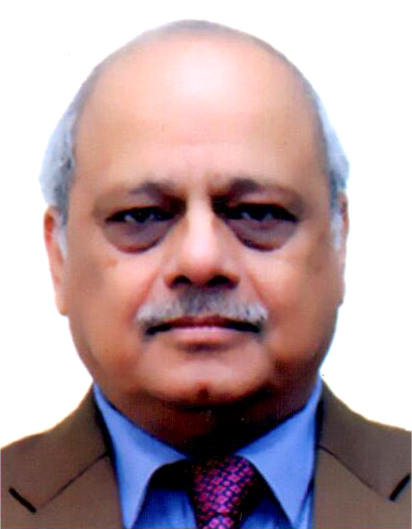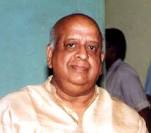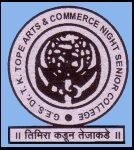Semester 4 Paper 3 – Indian Administration – summary
Mon, 10/02/2017 – 02:32 — Shubharaj Buwa
अनुक्रमणिका
Syllabus
Introduction to Indian Administration – भारतीय प्रशाासनाची ओळख
Evolution and Constitutional context – उत्क्रांती आणि घटनात्मक प्रशासन
Salient features – प्रमुख वैशिष्ट्ये
District Administration since independence – स्वातंत्र्यापासूनचे जिल्हा प्रशासन
Personnel Administration – कर्मचारी प्रशासन
Recruitment – All India Services, Central services and state services
नोकरभरती – आखिल भारतीय सेवा, केंद्रीय सेवा, राज्य सेवा
Public Service Commission – Union Public Service Commission and Maharashtra Public Service Commission
लोकसेवा आयोग – केंद्रीय लोकसेवा आयोग आणि महाराष्ट्र लोकसेवा आयोग
Training – All India Services, Central services, State services (Maharashtra)
प्रशिक्षण – आखिल भारतीय सेवा, केंद्रीय सेवा, राज्यसेवा (महाराष्ट्र)
Financial Administration – अर्थ प्रशासन
Budgetary process – अर्थसंकल्पाची प्रक्रिया
Parliamentary committees – Public Accounts Committee, Estimates committee, Committee on Public Undertakings
संसदीय समित्या – लोकलेखा समिती, अंदाज समिती, सार्वजनिक उपक्रम समिती
Comptroller and Auditor General – महालेखापाल
Contemporary issues in Indian Administration – भारतीय प्रशासनातील समकालीन प्रश्न
Integrity in Administration – Lokpal, Lokayukta and CVC – प्रशासनातील सचोटी – लोकपाल, लोकआयुक्त आणि केंद्रीय दक्षता आयोग
Citizen and Administration – नागरिक आणि प्रशासन
Citizen’s Charter – नागरिकांची सनद
- Introduction to Indian Administration – Evolution of Indian Administration
- British government direct rule – 1858 – earlier company raj – East India Company.
- Government of India Act 1935 – basis of the Indian constitution.
- ICS – Indian Civil Service started in 1858 – Neither Indian, nor civil, nor service – T. N. Seshan
- 1922 – ICS exams started in India – earlier they were conducted in London.
- NIC – National Informatics Centre – 1979 onwards – now manages the e-governance programme of government of India.
- Official secrets act – Information Technology Act – 2000 – Right to Information 2005
- LPG – Maruti Udyog shares sold in the market, VSNL was sold to Tata group
- NavIC – NAVigation with Indian Constellation (NAVIC) is an Indian Regional Navigation Satellite System (IRNSS) in India and is designed to provide accurate real-time positioning and timing services to users in India as well as the region extending up to 1500 km from its boundary, with plans for further extension. In Sanskrit, the word “Navic” (नाविक) means sailor or navigator.
- District Administration
- Collector belongs to the revenue department, he is also the leader of the district administration. Tehsildar works at the Taluka level and Talathi at the village level.
- At the district level the Zilla Parishad forms the part of development administration. The Chief Executive Officer of the Zilla Parishad is the leader of the development administration. At the block level or taluka level in Maharashtra there is a BDO – Block Development Officer and at the village level there is the Gram Sevak.
- Recruitment
- Basic two types – Direct & Indirect
- Lower level 100 % direct – Clerks etc.
- Middle level 80% direct + 20% indirect
- Upper level 100% indirect
- Basic two types – Direct & Indirect
- Types of services
- All India Services – IAS, IPS, IFS – IFS was constituted as All India service in 1966
- Central services
- State services
- UPSC – Article no. 315 of Indian constitution – Chairperson appointed by President of India – Article no. 320 describes the functions of UPSC – Members can work upto the age of 65 – or six years from appointment whichever is earlier.
- MPSC – Article no. 315 of Indian constitution
- Training
- YASHADA – Pune – for state government employees – Government of Maharashtra
- Lal Bahadur Shastri Academy – Mussoorie – Uttarakhand
- Financial Administration
- Budget for the period of one year – first presented by finance minister in Loksabha, then in the Rajyasabha. Rajyasabha has no rights – only 14 days of discussion allowed
- Planning commission established in 1950, now Niti Ayog since 2015.
- Standing committees of the Parliament
- Public Accounts Committee -established in 1921 by the British government – oldest committee – has 22 members (15 L + 7 R) – Leader of the opposition party in Loksabha is appointed as the Chairperson of the committee.
- Committee on Public Undertakings – established in 1964 – 22 members – (15 L + 7 R) – same as PAC – PM Jawaharlal Nehru called the public sector industries as temples of modern India.
- Both these committees function after the implementation of the budget – post-mortem work.
- Estimates Committee – established in 1950 by cabinet resolution – 30 members – all from Loksabha – works before the preparation of the budget.
- Members of all the above 3 committees are elected for a period of one year – they can be re-elected and normally they are re-elected, at least till the government changes.
- Contemporary issues in Indian Administration
- Lokpal – model based on – Ombudsman – Swedish institution – consists of chairperson and 8 other members – Justice Pinaki Chandra Ghose is the first chairperson
- Lokayukta – state level officer.


![]()
